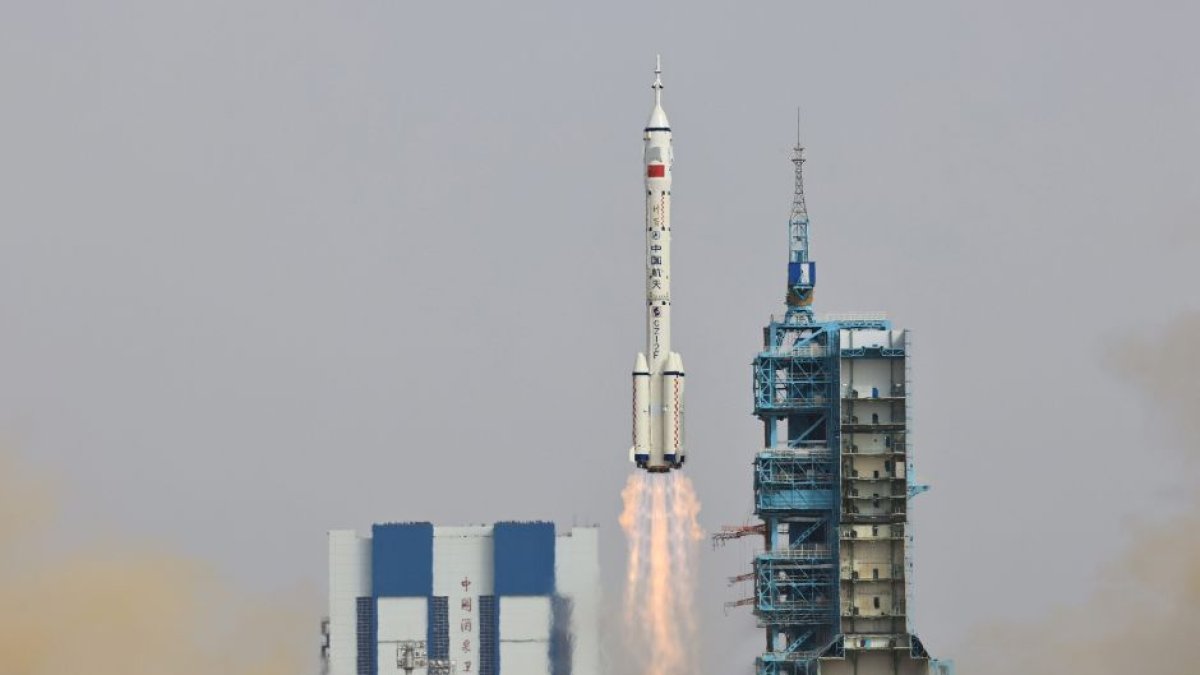China's Space Program: Designed to Defeat the United States
Both America and China are focused on scoring space spectaculars to influence the world as to which superpower will inherit the future.

(Cordon Press)
The US-China "Space Race" is but one dimension of the ongoing Cold War between the two superpowers. The national space programs of both countries are comprehensive in scope, running across the entire scientific spectrum. Both America and China are focused on scoring space spectaculars to influence the world as to which superpower will inherit the future. Each rival is seeking to be the first to land a human on Mars.
Far more significant than scoring space spectaculars, however, is the question of which nation will achieve military dominance in the domain of near-earth space. Chinese international media deceitfully stresses the peaceful, cooperative, and scientific nature of its national space program. However, the ambitious nature of China's space program indicates that Beijing's primary objective is to dominate near earth space.
The leaders of the Chinese Communist Party's (CCP) are acutely aware of the advantages that US space-based systems give American troops in combat operations. US collection and data transmission satellites have proven invaluable to deployed American units in Iraq, Afghanistan, and to Special Operations forces targeting terrorists throughout the world.
China's People Liberation Army (PLA) has acknowledged the great value that US space-based intelligence collection has been to Ukrainian forces fighting Russia's invading troops.
In this vein, one strategic goal of the PLA is to deploy the "Beidou" network of satellites in space that equivalent to the US "eyes and ears" in the sky. The PLA commander of China's Western Military Theater will be able to employ the Beidou satellites to monitor deployments of India's military forces along the lengthy, tense Sino-Indian border. The Chinese claim large sections of this border as their sovereign territory, which China threatens to invade like the PLA did in 1962 and 2020-21.
The Central Military Commission of the CCP also uses its space-based systems to maintain strict control of China's military assets. Party and PLA leaders in China's Eastern Military Theater could use space assets to order regional Chinese Commanders to adopt more aggressive rules of engagement than normal, against the sovereign rights of several neighboring states, especially in the waters and islands of the South and East China Seas.
The CCP seemingly intends to employ its space-based assets to win a war with US in the western Pacific, where clashes between the two superpowers are most likely to occur. China's PLA is openly preparing for war, particularly in areas where Beijing's territorial and maritime claims are illegal and hegemonic. The aggressive nature of China's space program is particularly obvious in its anti-satellite projects. One of China's anti-satellite programs features a maneuverable satellite that can be positioned to within striking distance of US and allied satellites.
The proximity of these Chinese anti-satellite vehicles clearly reveals the mission to degrade and/or blind collection and transmission of intelligence data by US systems. Another Chinese anti-satellite project features a satellite with a grappling hook, designed to capture US satellites as an immediate prelude to war. Beijing is planning to win a war in space as part of its reported overall objective of replacing the US as the dominant power on earth. One assessment estimates that fully 84% of China's space launches are military in nature -- indicating that the CCP may well be determined to emerge as the only remaining superpower.
Some commentators point to China's plan to catch up and eventually surpass US space accomplishments. While US space-related budgetary expenditures in 2022 of about $z dwarf China's budget of approximately $12 billion, the Chinese space program gets more "bang for the buck." All Chinese space-oriented corporations are totally controlled by the CCP. Space infrastructure is another measuring stick to determine the serious commitment by both superpowers to be able to fight a war using the near-earth space dimension. The US has seven spaceports and China has four. Yet both nations have detailed plans to expand existing infrastructure. The number of launches in 2021 is one more clear signal that China is a determined and gaining adversary. In 2021, the US executed 51 launches from its spaceports, China 55.
Beijing is now constructing a model of a lunar research station in cooperation with Russia and Venezuela. China is also planning to dispatch a team of astronauts to the moon by 2030. To accomplish this lunar mission, China's space agency must create larger rockets, with greater thrust capacity. Accordingly, work continues on China's creation of the Long March 9 Rocket. Not coincidentally, China aims to reach parity in space with the US by 2030. Even the Pentagon muses that China could surpass US capabilities in space by 2045. Throughout the next few decades, China will doubtless maximize its efforts to achieve primacy in near-earth space.
It will also most likely be in the dimension of space, as well as biowarfare, that mankind will get a tip-off that a major armed conflict is about to breakout between China and the United States. China at present not only has "killer satellites," but also reportedly:
"Beijing also has rapidly developed an array of space warfare capabilities, including several types of ground-launched anti-satellite missiles capable of hitting satellites in different orbits; ground-based lasers that can blind or damage orbiting satellites; and small robotic satellites capable of maneuvering and grabbing orbiting satellites."
China will most likely attempt to shut down US intelligence collection, "eyes and ears in the sky," prior to combat operations on earth. The United States, if an impending military clash seems unavoidable, may be forced to "preemptively retaliate" by disabling China's intelligence collection and data transmission space-based assets – if it can.
"[I]f the U.S. military doesn't change course... " Air Force Lt. Gen. S. Clinton Hinote, the deputy chief of staff for strategy, integration and requirements, said in 2021," we're going to lose fast. In that case, an American president would likely be presented with almost a fait accompli" – a term "often used in U.S. military strategy contexts to describe a scenario in which an adversary of the U.S. is able to defeat a U.S. strategy before it can even be launched."
It seems high time that the US increased its defense budget instead of cutting it, prepositioned arms in Taiwan for deterrence, and got serious about acknowledging the Chinese Communist Party, led by President Xi Jinping, not as a "competitor," but as an adversary, and an intractable one at that.
























